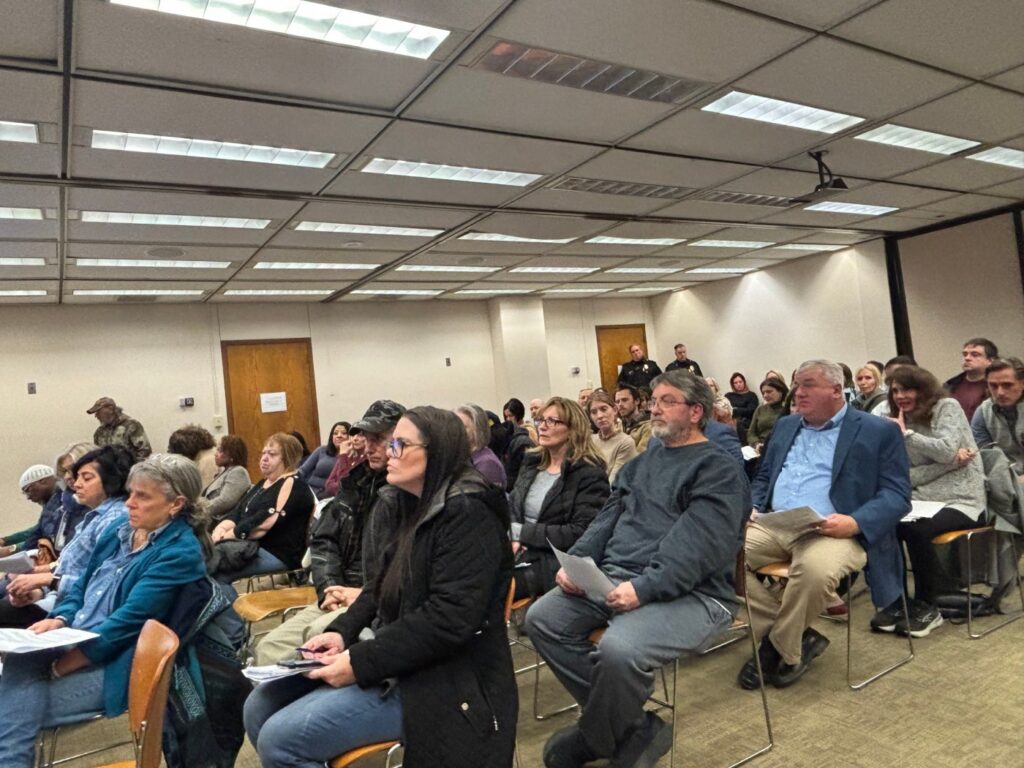
Residents of Delaware County voiced strong opposition to a proposed 19% property tax increase during a recent County Council meeting. The proposal, outlined by County Executive Director Barbara O’Malley, is part of the budget for 2026 and is set to undergo its first reading on December 3, 2023, with final approval anticipated by December 10, 2023. This follows a 23% tax increase enacted the previous year, which raised the annual tax burden for the owner of an average property assessed at $255,108 from $803.34 to $988.03.
If approved, the upcoming tax increase would raise the average tax bill by nearly $188, prompting concerns from residents about the financial strain on families already facing economic challenges.
During the meeting, resident Cynthia Sabatini highlighted the financial hardships many are experiencing. She pointed to the success of the recent Delaware County Community Food Drive, noting, “It’s obvious that people are hurting financially in Delaware County. The proposed 19% tax increase, on top of the 24% increase for 2025, will push additional residents to the brink.” Sabatini urged the council to consider the broader implications of the tax hike, suggesting it could exacerbate issues of domestic abuse and crime.
County Communications Director Michael Connolly defended the proposed tax increase, citing a structural deficit inherited by the council, dwindling budget reserves, and the conclusion of pandemic-related funding as key reasons for the hike. He noted rising costs associated with the county’s required contributions to the Southeastern Pennsylvania Transportation Authority (SEPTA) and escalating health care expenses.
Community members expressed frustration over budget management. Resident Michael Straw questioned why the county could not control its fiscal situation, criticizing a projected 6% increase in spending from 2025 to 2026. He pointed out that over the past four years, spending had already increased by 5.5%. “If I had to choose between seeing taxes increasing and my rent going up or a new trail being created, I’d prefer we put the trail on hold,” Straw stated, emphasizing the need for cost minimization.
Others, like Joy Schwartz, questioned the necessity of certain county initiatives, such as the establishment of a new health department and an office for Diversity, Equity, and Inclusion (DEI). Concerns were also raised regarding the budget for the George W. Hill Correctional Facility, which is projected to cost the county $61 million in 2026. Resident Kim Brown highlighted that inmate numbers have halved since the county regained control of the facility, yet costs have continued to rise significantly.
Sabatini called attention to the substantial 33% increase in prison costs since 2022, despite a decrease in the inmate population. She questioned the rationale behind rising expenses, saying, “My question is, why is there an inverse relationship between costs and prison population?”
Connolly addressed these concerns, explaining that rising costs at the facility are attributed to essential expenses such as food and healthcare, which would have increased regardless of management. He emphasized the county’s commitment to providing a safe and humane facility for its residents.
As the meeting concluded, resident Selma urged the council to freeze the proposed millage rate, describing the situation as “financial suffocation from all angles.” She implored the council to reconsider the normalization of tax hikes as a solution. Connolly acknowledged the work of the Budget Task Force in improving the transparency of the budget process and noted that many of their recommendations will take time to implement.
The discourse around the proposed tax increase reflects a broader concern among Delaware County residents regarding fiscal responsibility and community welfare as the county navigates financial challenges.






